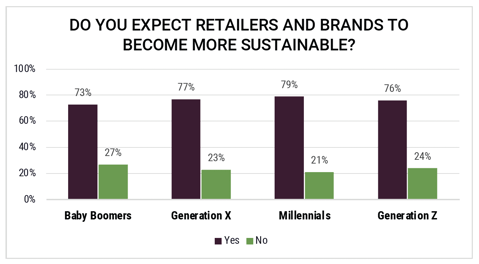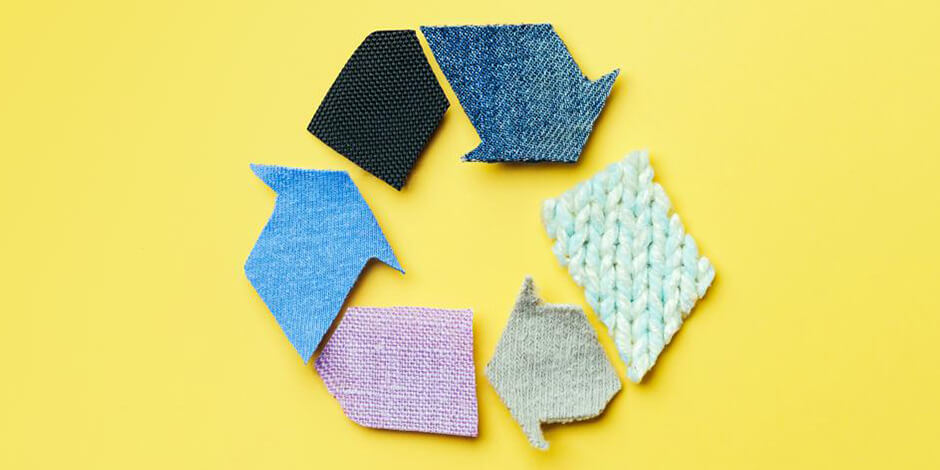Well, the results are in...according to a recent First Insight study, on average 75% of ALL generational groups from Gen Z to Baby Boomers care about retailers being sustainable and offering sustainable products.

The same report shows that consumers are NOT willing to pay enough more for sustainability to cover the costs.
Further, the information indicates that the industry has not done a great job educating consumers on what sustainability means or how to identify it properly so that a consumer can correctly relate to the initiative or product.
Does this come as a surprise? Not really.....
What it does do is beget the question that if consumers are not willing to ante up the money to pay for sustainable products, do retailers and brands have the intestinal fortitude to maintain a path forward into a sustainable future or is it just another interesting trend to go by the wayside?
In order to understand what might occur, I think it best to look at what might happen if a retailer or brand were to invest (or not) on a sustainable future and how customers are likely to react given how the competitive landscape may respond. What does that mean? Let’s look at an example.
If Brand A decides to move forward on sustainability and absorbs a cost of 5% more to bring a more sustainable product to market and consumers simply continue to buy from them at the same rate, they have lost 5% gross margin. This assumes nothing changes in the competitive landscape. But let’s say their competitors follow. Likely the overall cost will come down and then everything falls back into the same equilibrium that previously existed assuming advancements in manufacturing, etc., that typically occur. The difference is consumers and society as a whole have benefitted.
However, if their competitors don’t follow, they could potentially gain market share and the gross margin percentage may go down, the revenues and customer acquisitions grow. Long term they win.
If the company chooses not to follow the sustainability desires of the customer, while they may in the short term gain the 5% gross margin, they risk losing to competitors who do adopt and they also risk losing long-term customer base and revenue.
Given this conundrum, what should a retailer, brand, or manufacturer do?
It seems clear that understanding and anticipating how consumers are likely going to react through testing the strategy would be far superior and more risk-averse than executing on either side and then responding.
That said, many executives still say that consumers don’t know what they want, and it is their role to determine that for them. While I do agree that it is an executive’s or decision maker’s responsibility to make those decisions completely – and they should – my point of view is that we should arm them with the best possible facts and data to make them. Test, test and test…it is the best form of listening and seeking to understand. The alternative is a competitive disadvantage and far more risky.

















